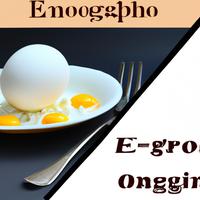
1 serving (30 grams) contains 120 calories, 25.0 grams of protein, 0.0 grams of fat, and 1.0 grams of carbohydrates.

Log this food in SnapCalorie

Nutrition Information
Calories |
960 | ||
|---|---|---|---|
% Daily Value* |
|||
| Total Fat | 0 g | 0% | |
| Saturated Fat | 0 g | 0% | |
| Polyunsaturated Fat | 0 g | ||
| Cholesterol | 0 mg | 0% | |
| Sodium | 3040.0 mg | 132% | |
| Total Carbohydrates | 8.0 g | 2% | |
| Dietary Fiber | 0 g | 0% | |
| Sugars | 0 g | ||
| protein | 200.0 g | 400% | |
| Vitamin D | 0 mcg | 0% | |
| Calcium | 80.0 mg | 6% | |
| Iron | 0.8 mg | 4% | |
| Potassium | 2400 mg | 51% | |
* Percent Daily Values are based on a 2,000 calorie diet. Your daily values may be higher or lower depending on your calorie needs.
Food Attributes
Source of Calories
About Egg white protein
Egg white protein is a high-quality, complete protein derived from egg whites, the clear, protein-rich portion of the egg. It contains all nine essential amino acids, making it an excellent choice for muscle repair and growth. Low in calories, fat, and carbohydrates, egg white protein is ideal for those seeking a lean protein source. It originates from traditional uses in culinary practices worldwide, particularly in baking and cooking, where egg whites are valued for their ability to create structure and texture. Free from dairy and lactose, it is a suitable option for those with dietary restrictions. However, it may not be ideal for individuals with egg allergies. Egg white protein is also cholesterol-free, making it a heart-healthy choice compared to whole eggs. While nutrient-dense, it is often recommended to consume alongside other food sources to ensure a balanced intake of vitamins and minerals.



